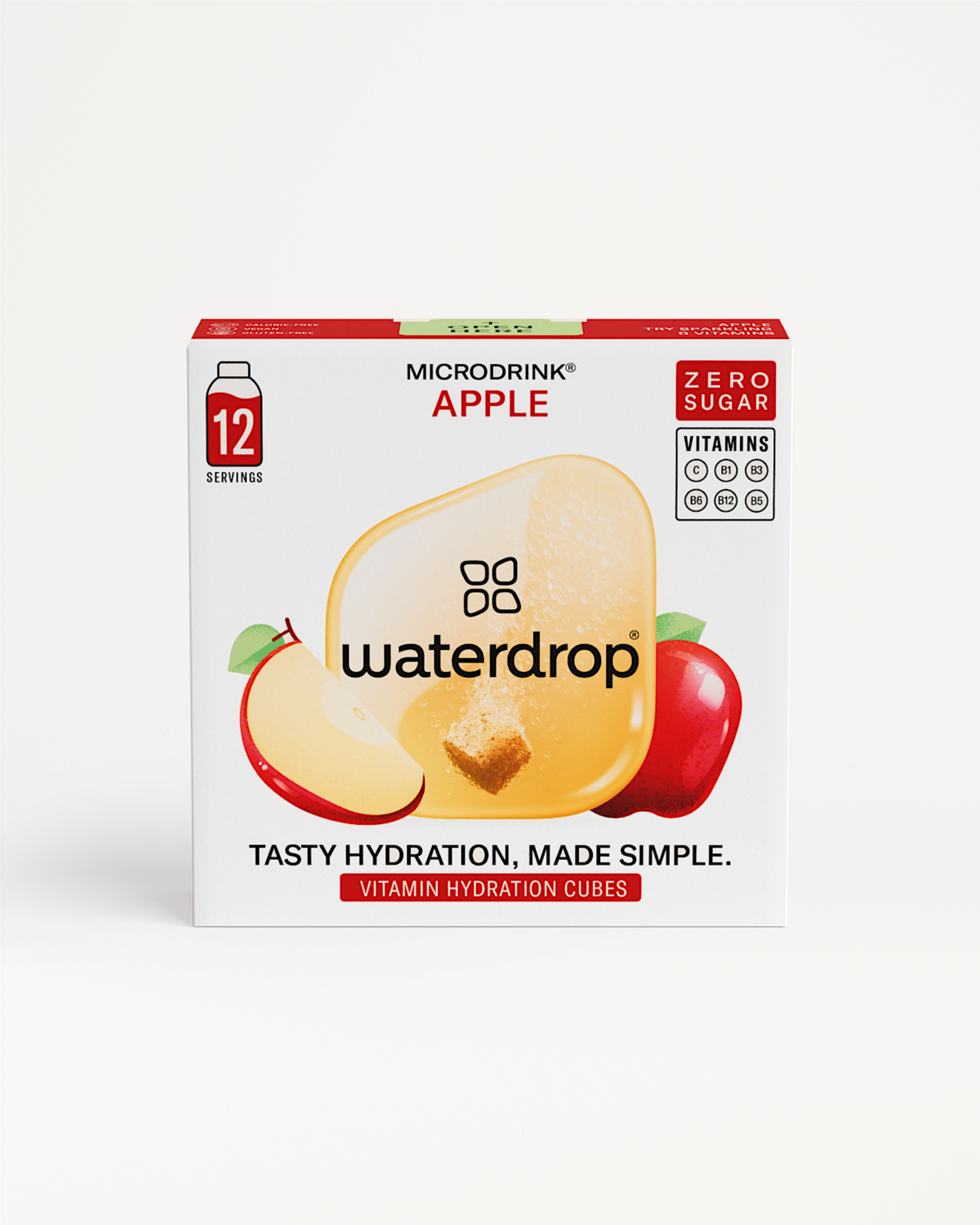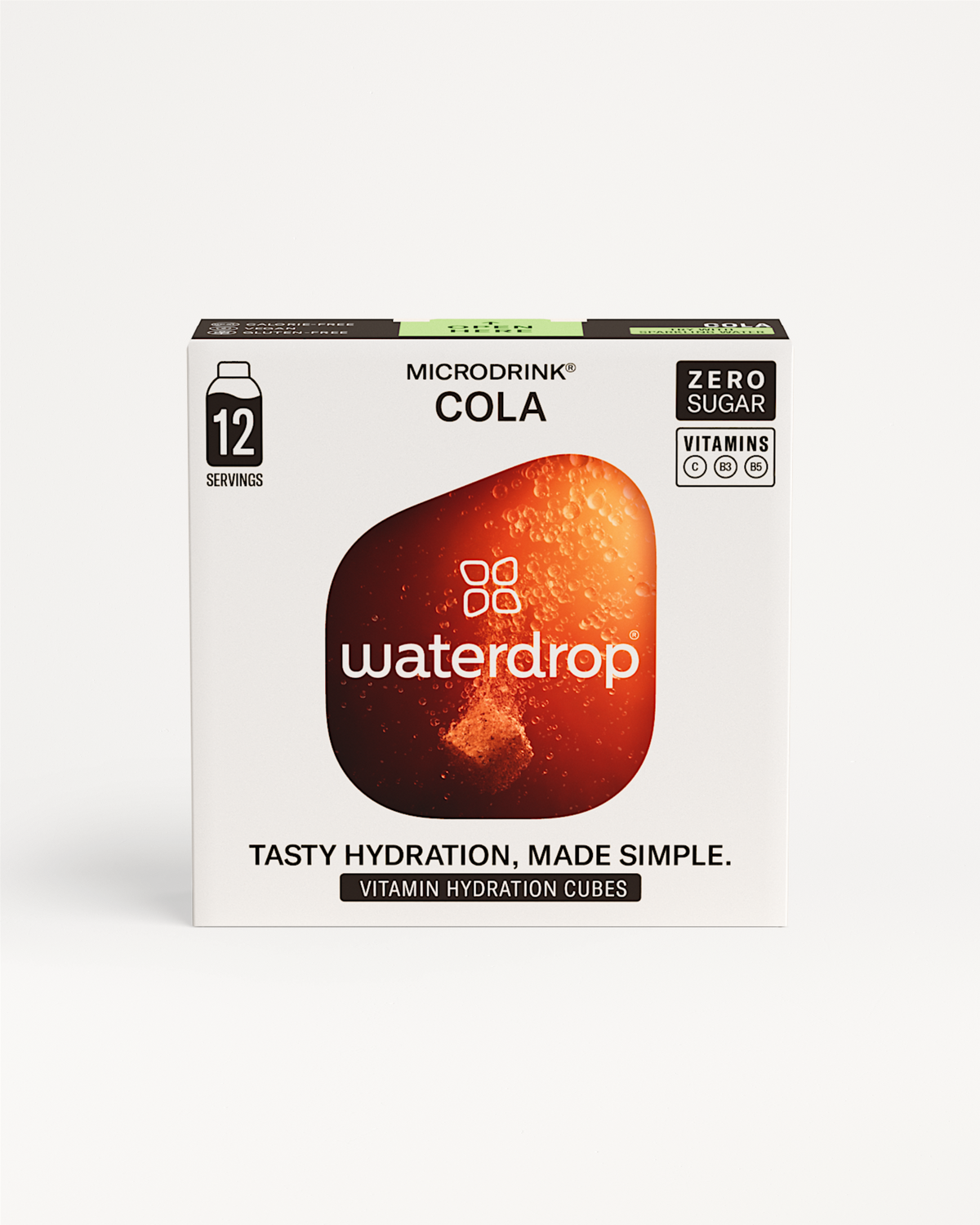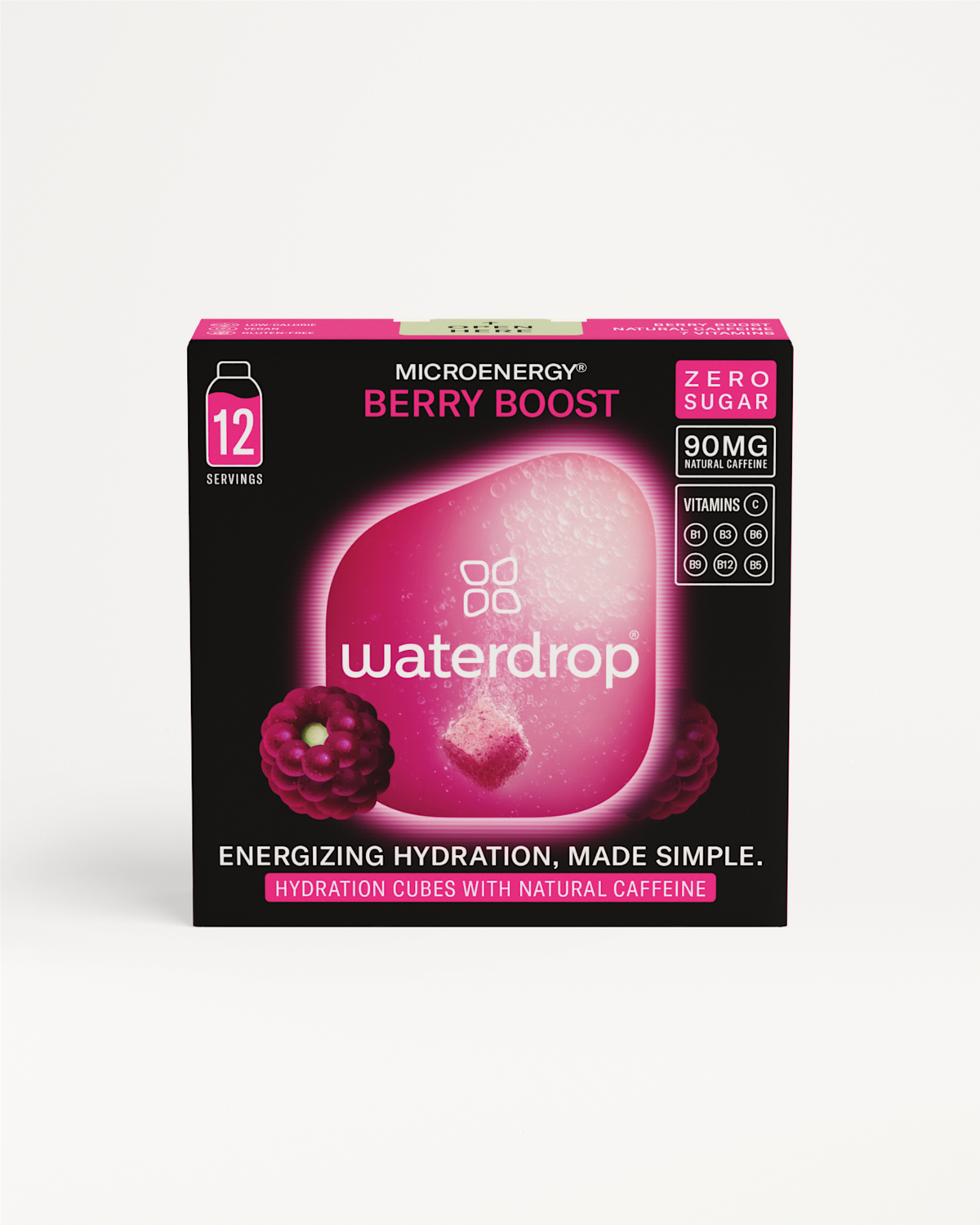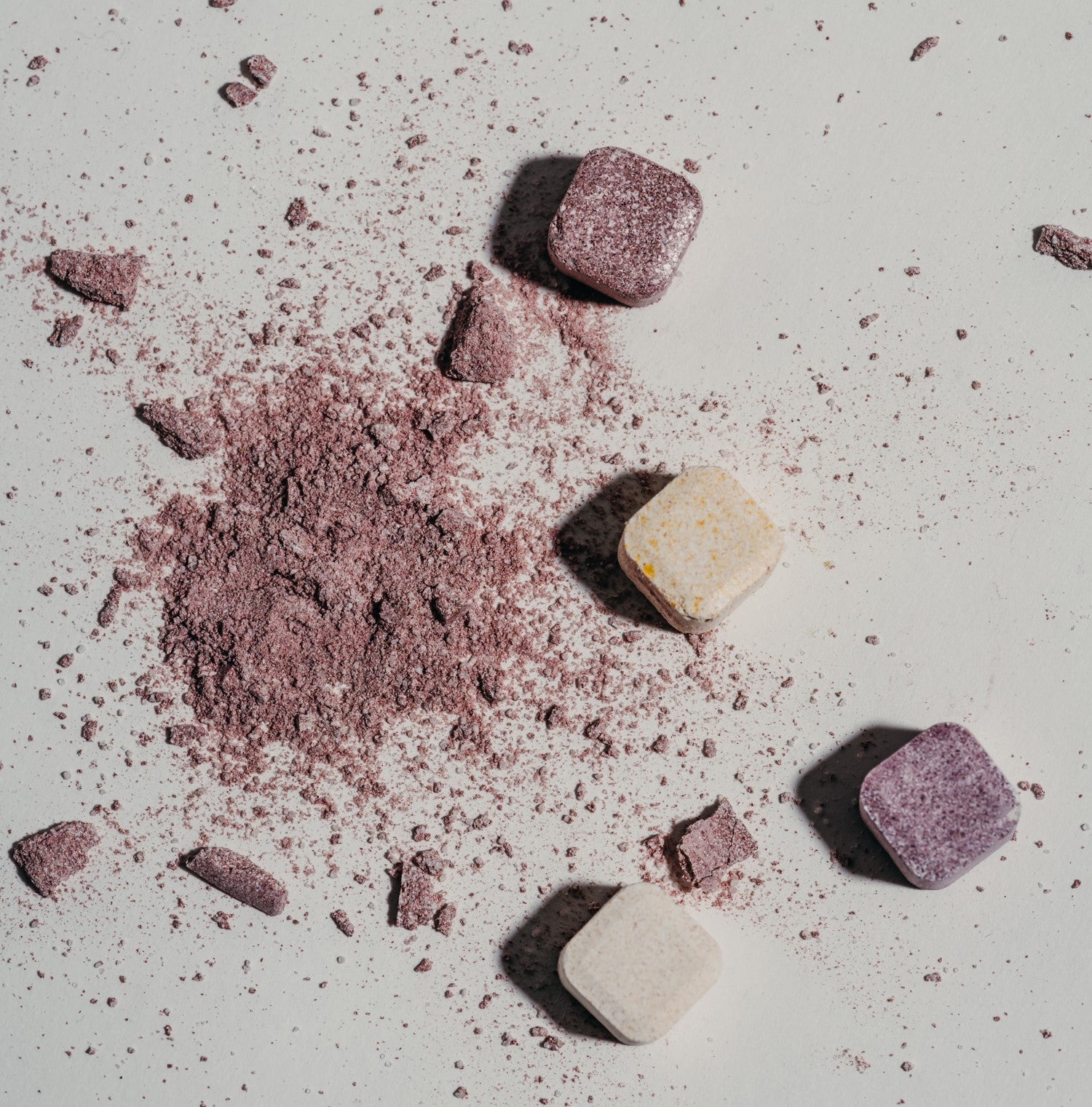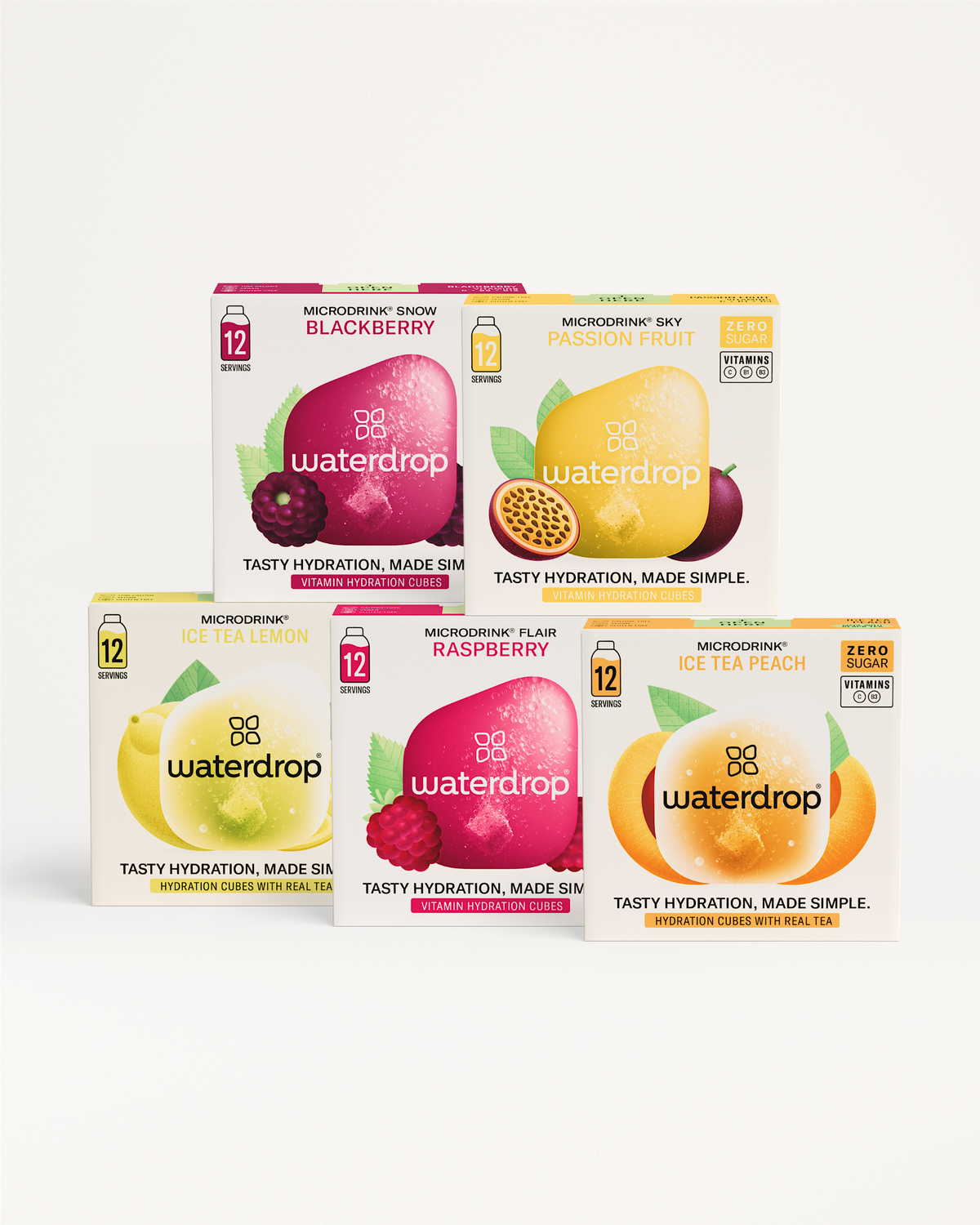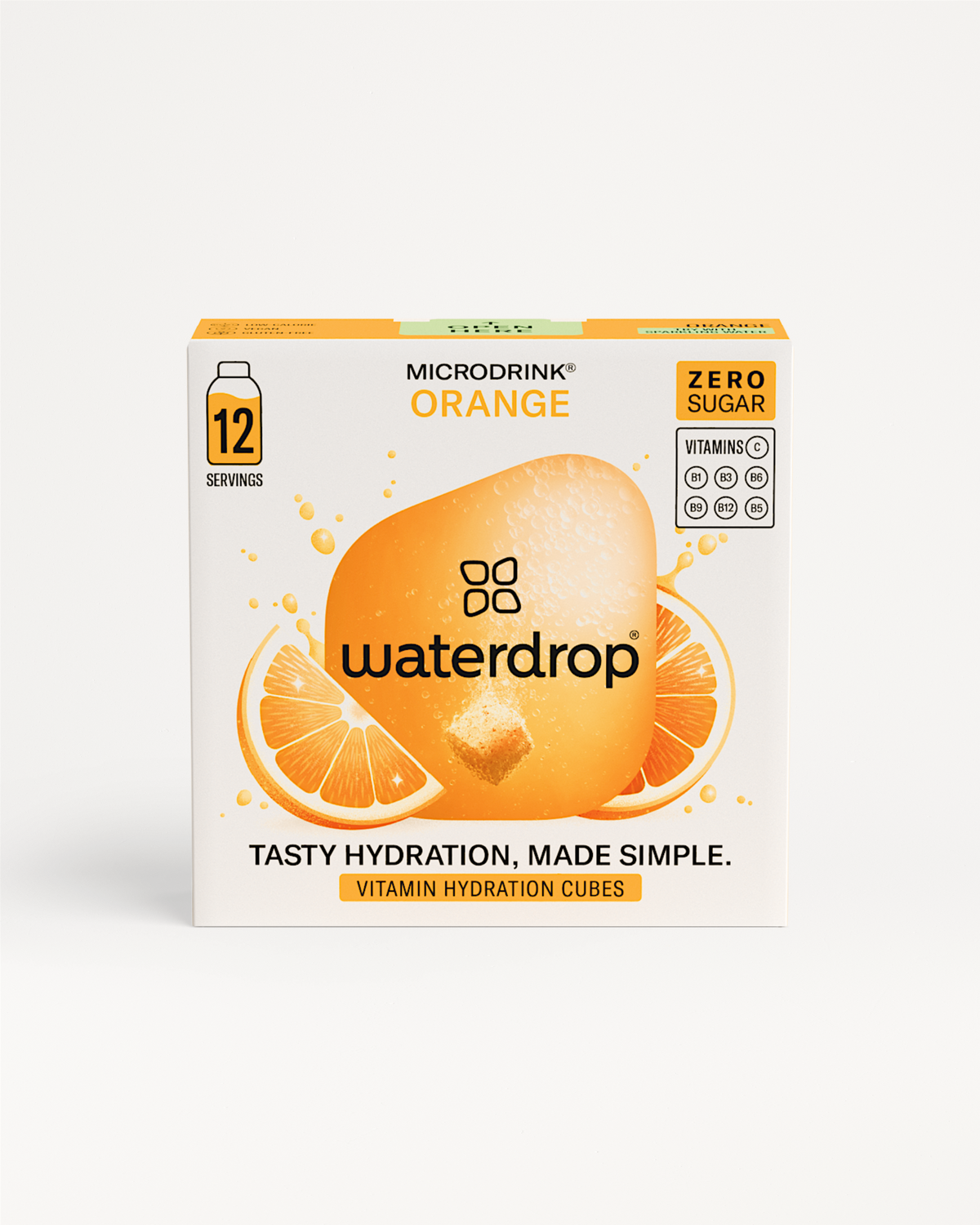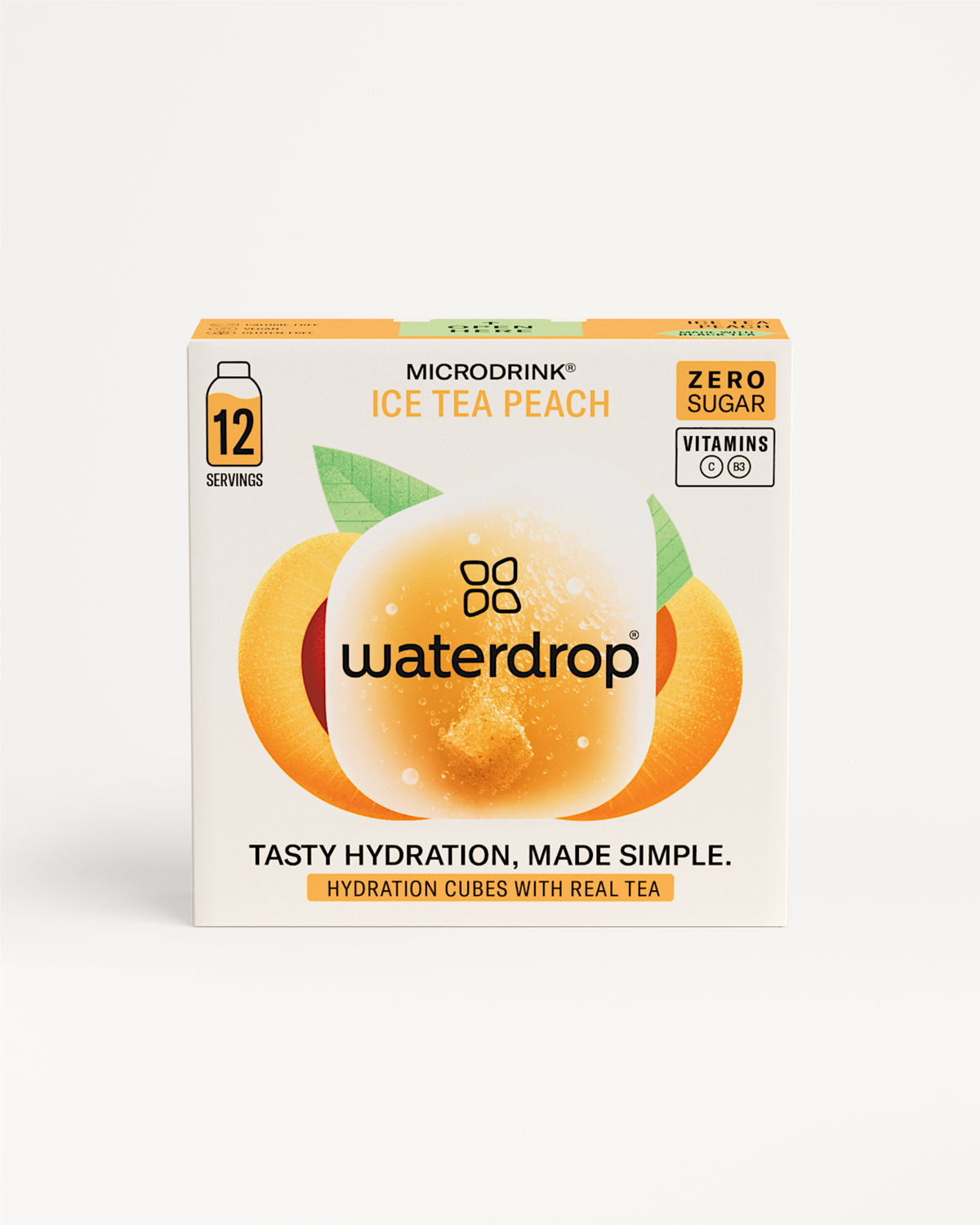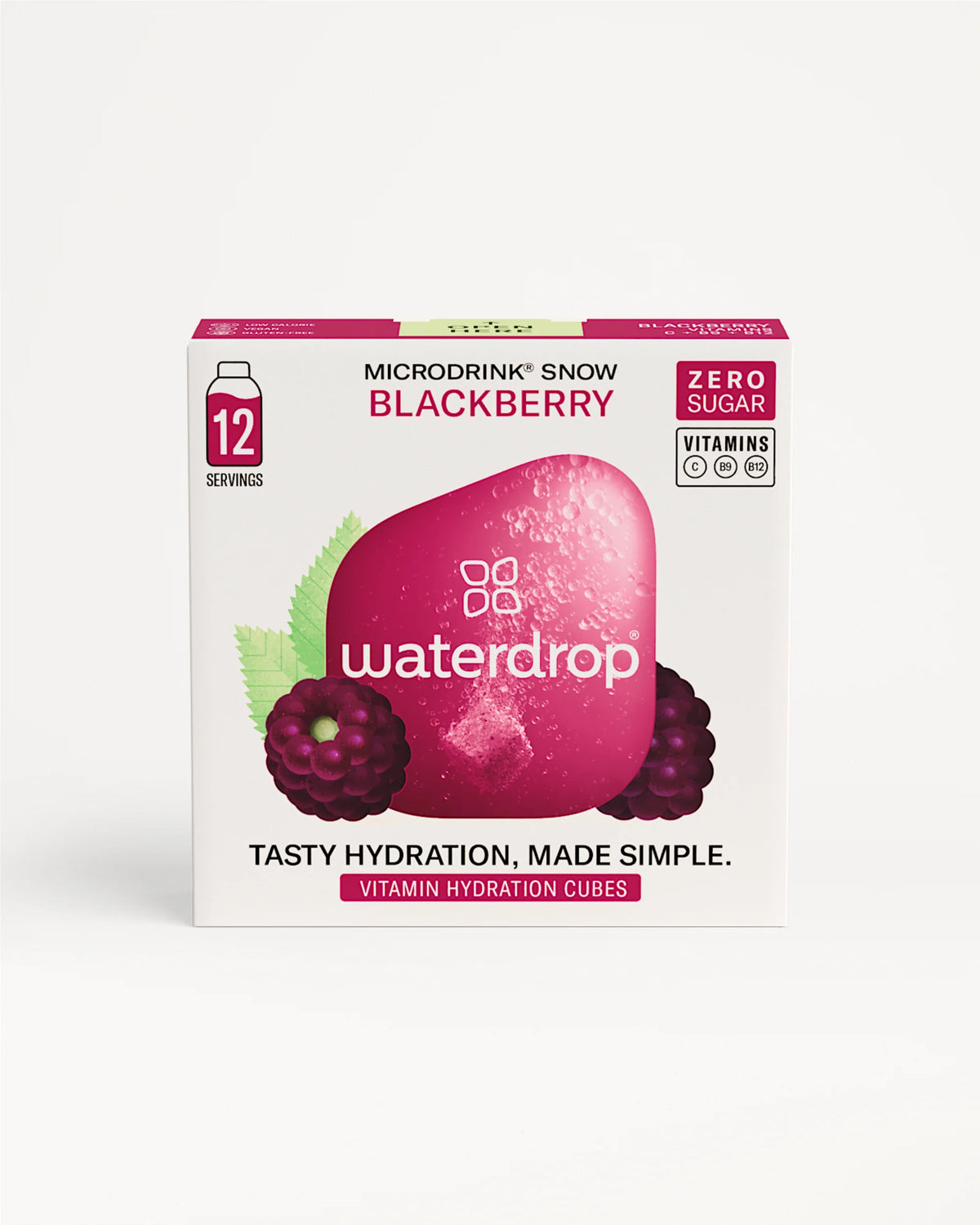Weighing in at only 2 grams each, it may be hard to believe that our little cubes contain all the fruit and plant goodness we promise to have. And yet, this is true and remains to date, a feat we are proud to have mastered. Since the re-flavoring of our recipes, we sat down with Alexandra Kluy, Team Lead of Research and Development (R&D) here at waterdrop® to learn more about how our refreshing hydration cubes are made and the fruity ingredients within.
What can you tell us about the difference between fruit powders, fruit extracts and fruit aromas?

So, fruit powders, extracts and natural aromas are all products derived from fruit but they have different characteristics and separate functions. Fruit powders and extracts are made by processing the fruit to concentrate its flavour, colour and nutritional value into a small, but mighty essence. Natural fruit aromas on the other hand, are already concentrated forms of the volatile compounds that give a unique aroma and flavour. That’s the main difference between the three forms.
What is the difference between using fruit powders, fruit extracts and natural fruit aromas in recipes?
Well, it’s first important to consider they have their individual strengths. Fruit powders are either used to form a fruit puree/juice or added to food and drinks as a flavour enhancer while fruit extracts are often used as natural colouring agents, flavourings or added to dietary supplements. Fruit aromas on the other hand, are typically used in the food and beverage industry as a natural, rather than synthetic flavoring.These are usually added in small amounts to enhance the flavour but they don’t change the colour nor add any significant nutritional value.
If that’s the case, how do you then decide what to use for certain recipes?

We mostly use fruit powders and extracts in our recipes – for instance, if we would like to add a natural tinge of colour to the drink, we would choose an extract with a bolder colour e.g. blackcurrant. If we feel the flavour of one of the ingredients needs to stand out more, we would then opt for using a powdered form.
It also depends on what type of flavour we are deriving from the fruit. Some fruits, e.g. citrus fruits, have their flavours concentrated within the oily parts of the fruit aka essential oils, so their flavour can only be extracted and not made into a fruit powder. As you can guess, there’s a lot that goes into our R&D process but you have probably heard about it from Christoph so I won’t go into too much detail here (click to read Behind the Flavour with CDO Christoph Hermann)
How are the raw ingredients processed to become the final state e.g. fruit powders/extracts?
There are several methods for producing fruit powders and extracts, but the most common methods include spray drying, freeze drying, and dehydration.
In spray drying, the fruit juice or puree is reduced to small droplets and then exposed to hot air, which evaporates the moisture and leaves behind a dry powder. In freeze drying, the fruit is first frozen, and then the moisture is removed through sublimation, where the ice turns directly into a gas without passing through a liquid state. This process helps to preserve the colour, flavour, and nutritional value. The final product is a dry, lightweight fruit powder that can be rehydrated by adding water.
Dehydration is a simpler method that involves exposing the sliced or chopped fruit to low heat until most of the moisture has been removed. The dehydrated fruit is then ground into a powder or processed further to make an extract.
Are there any benefits to using fruit powders/extracts over real fruits?

While fruit powders and extracts can possess some advantages over fresh fruit, they are definitely not a substitute for a balanced diet (that includes a variety of whole foods)!
Having said that, one good thing about fruit powders and extracts is that they are convenient and easy to use. They can be added to smoothies, baked goods, and other recipes to enhance the flavour and nutrition of the dish. They are also lightweight and have a long shelf life, making them a good option for those who travel or have busy schedules.
Fruit powders and extracts can also be a concentrated source of certain nutrients, such as antioxidants, vitamins, and minerals, compared to fresh fruit. This is great for those who want to increase their intake of nutrients without eating large amounts of fruit.
Are nutrients and taste completely preserved when reducing fruits to either a powder/extract?
Hmm, I would say this varies and depends on the type of fruit, processing methods, and storage conditions. In general, some nutrients may be lost during processing, but the final product can still retain a significant amount of valuable vitamins, minerals, and antioxidants.
The taste of the fruit can also be affected by processing, as some of the flavours may be lost. However, if the right processing and storage methods are used, we can ensure that the flavour of the final fruit powder/extract resembles the original form and this is also how we ensure our beverages (Microdrinks, Microteas, Microenergy and Microlytes) taste as authentic as possible.
With the new and improved Microdrink recipes especially, we’ve really listened to what our community has had to say and worked on boosting the final flavour so go ahead and check them out – you won’t be disappointed for sure!





















